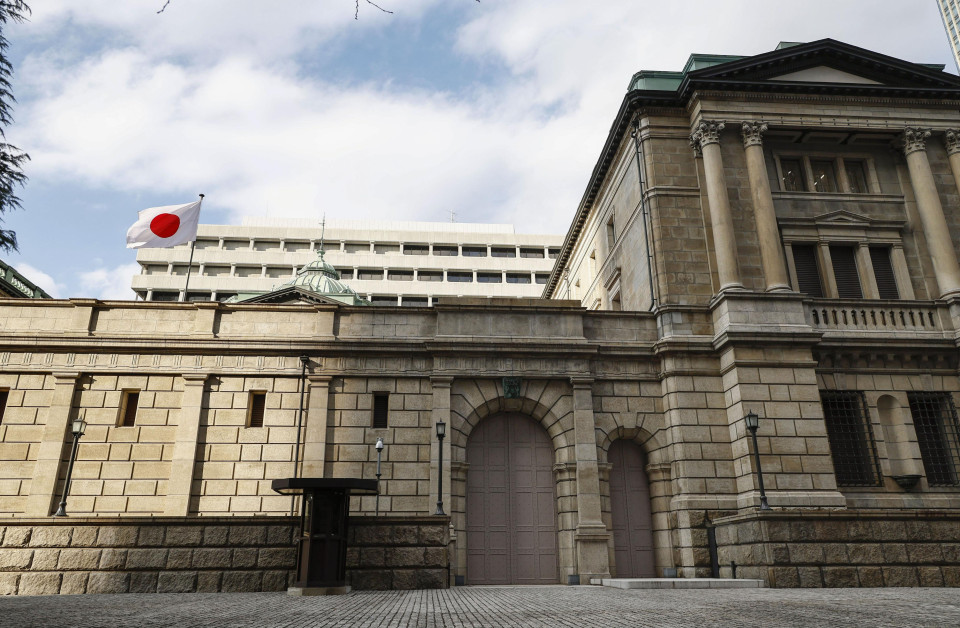The government dropped a call in its monthly report for the Bank of Japan to pursue “bold monetary policy” after the central bank raised interest rates for the first time in 17 years, believing Japan was on track to achieve inflation. goal.
While maintaining its assessment of Japan's economy from last month, the government continued to emphasize the need to overcome deflation and pledged to work closely with the Bank of Japan to ensure “flexible policy management.”
The March report is the first since the Bank of Japan announced on Tuesday an end to the unusually accommodative monetary policy maintained for the past decade to combat Japan's chronic deflation.

A photo of the Bank of Japan headquarters in Tokyo taken on January 23, 2024. (joint) == joint
The government has previously said it “expects” the Bank of Japan to achieve its 2% inflation target sustainably and stably, and that the Bank will “promote bold monetary policy, flexible fiscal policy, and a growth strategy.” said.
However, the latest report from the Cabinet Office states, “The government and banks will continue to work closely together and conduct policy management flexibly in response to economic and price conditions.''
In 2013, the Bank of Japan implemented a number of strong monetary easing measures that formed the backbone of then-Prime Minister Shinzo Abe's “Abenomics” program aimed at spurring economic growth.
Economic Revitalization Minister Yoshitaka Shindo said the government aims to use “all available means” to strengthen the economy by raising wages and promoting investment.
“What we want to create is a situation where there is no prospect that (Japan) will return to deflation,'' Shindo said at a press conference. “Our decision (on whether to formally declare an end to deflation) will not be made simply because monetary policy has changed.”
While the first small interest rate hike since 2007 is seen as symbolic, the Bank of Japan said it expects financial conditions to remain accommodative given the current economic outlook.
Even though the US Federal Reserve is expected to start cutting interest rates this year after two years of rapid rate hikes to curb price increases, financial markets have viewed the BOJ's message as dovish. This is interpreted as leading to a depreciation of the yen against the dollar.
In its March economic report, the Cabinet Office maintained its view for the second consecutive month that the economy is “slowly recovering, although it appears to be at a standstill.''
However, the agency was more optimistic about capital investment, a key component of domestic demand, saying it was showing signs of “picking up” with the rating upgrade for the first time in 17 months.
The outlook is brighter after better-than-expected capital spending by Japanese companies revised upward gross domestic product (GDP) data for the final quarter of 2023, helping the economy avoid a second consecutive quarter of negative growth. was born. recession.
Changes were also made to imports, with the secretariat saying imports were on a “weak trend”, marking the first downward revision since January 2023.
Other key components of the economy, such as private consumption, exports, and industrial production, were maintained.
The agency kept its overall assessment of the global economy unchanged for the 11th consecutive month, stating that it is “picking up despite weakness in some regions.”
Related coverage:
Japan's core inflation rate will accelerate again to 2.8% in February.
Japan is closely monitoring currency trends: Finance Minister
Focus: Bank of Japan turns the page on Abenomics, giving hope to Kishida's shaky election


